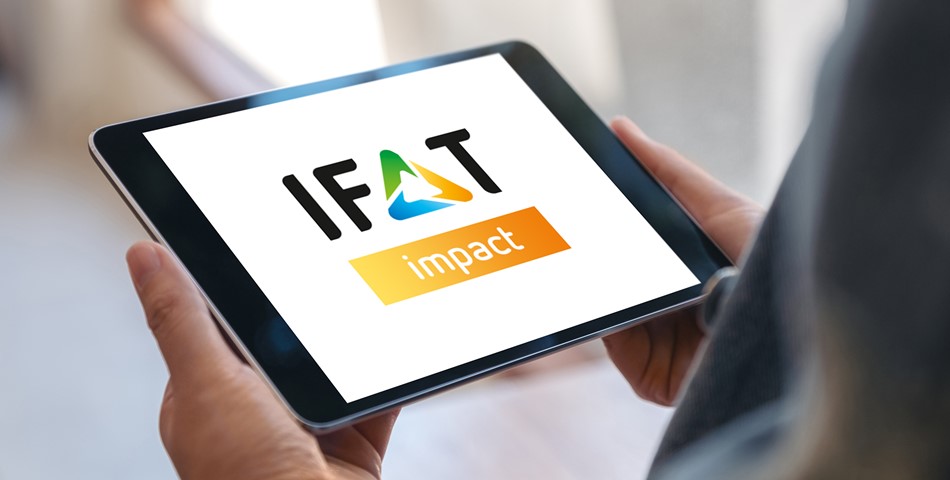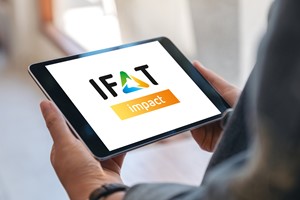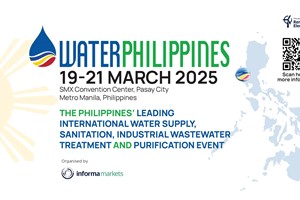The coronavirus crisis is putting enormous pressure on the economy and municipalities. However, despite the many challenges and obstacles, there are also opportunities. The new IFAT impact knowledge platform supports the environmental technology sector in recognizing and seizing these. Stress test passed: “If there is anything positive to be gained from the pandemic, it is this: it has made us acutely aware of the importance of a secure supply, including of energy and drinking water,” says Michael Riechel, President of the German Technical and Scientific Association for Gas and Water (DVGW). According to him, the companies have for example succeeded in maintaining the high level of drinking water supply despite staff shortages and supply restrictions. Riechel: “The coronavirus outbreak is yet another of the tests our systems have passed.”
Accelerated: digital transformation
In addition, in many companies the infection control measures have accelerated the digitalization of work processes. The DVGW President is sure: “Due to the physical distancing measures, the digital agenda, which already existed in many cases, was given top priority. Suddenly, employees were forced to discover the possibilities and benefits of the digital transformation. In some areas, a hundred percent conversion took place virtually overnight—a trend that will also shape the post-coronavirus era.”
Proven: systemic importance
The German waste management industry withstood the strains triggered by the pandemic as well. “Practically none of our member companies has stopped working,” reports Eric Rehbock. The Managing Director of the Federal Association for Secondary Raw Materials and Waste Management (bvse) continues: “The private waste management sector has kept all disposal channels open for citizens, but also for commerce, trade and industry—also and especially where municipal facilities had been closed or restricted.” There was also praise from politicians. In April this year, Federal Environment Minister Svenja Schulze said: “Especially in these difficult times, waste collection and disposal companies prove their systemic importance to our country.” In a joint press release together with the Federal Association of the German Waste, Water and Raw Materials Management Industry (BDE), she and BDE President Peter Kurth paid tribute to the achievements of the German waste management and circular economy during the coronavirus crisis. Kurth makes clear that this systemic importance is by no means limited to consistently emptied waste bins: “Particularly in the current situation, the waste disposal infrastructure in many sectors maintains industrial production by providing recycling raw materials such as waste glass, waste paper and metals. So, the German circular economy ensures that the chain of production is not disrupted.”
Hope for new stimulus
What the industry spokespersons have in common is the hope that the reorientation of the market economy, possibly triggered by the pandemic, will provide positive impulses for their sectors. The DVGW emphasizes the strong directional impulse that corresponding stimulus and investment packages could have on the energy supply’s decarbonization path after the crisis. The bvse and the BDE hope that the demand and the market opportunities for recycling raw materials will be improved by means of clever incentives.
Sewage treatment plants used for infection monitoring in the future?
The coronavirus crisis may lead to a new task for sewage treatment plants as early warning systems. For example, a team of wastewater experts, microbiologists, virologists and modelers from the Helmholtz Centre for Environmental Research, the German Association for Water, Wastewater and Waste (DWA) and the Technical University of Dresden is currently working on directly determining the total degree of infection in the catchment area of wastewater treatment plants from representative wastewater samples. Sewage treatment plant operators of numerous cities support them. “If wastewater monitoring works and can be implemented nationwide, there is a huge potential for dealing with the current SARS-CoV-2 pandemic—and, in the long term, for comparable future pandemics—because it will allow valid data on the so-called infestation of the population to be collected and analyzed,” comments Saxony's Science Minister Sebastian Gemkow. According to the DWA, the measuring system could, for example, be used to monitor the consequences of easing restrictions in infection control and, if necessary, to adjust them.
New marketing ideas
As in other economic sectors, some companies have developed creative (marketing) ideas. Example: a cooperation of companies is now offering technical solutions to ensure drinking water hygiene for hotels, restaurants, schools as well as day-care and sports facilities after the week-long coronavirus shutdown (keyword: contamination and legionella). And a manufacturer of material handlers, which are also used in the waste and recycling industry, offers its customers a new, interest-free financing model that enables immediate revenue generation with the new machine—even before the first installment is paid.











